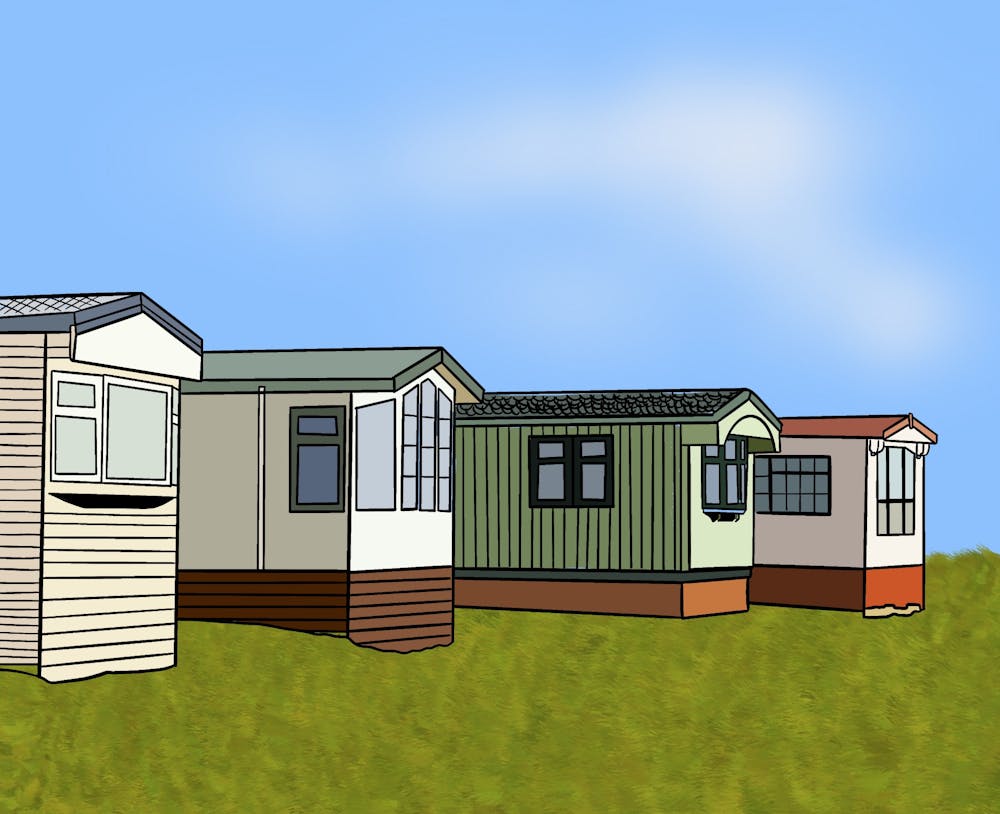In March, HousingWorks RI at Roger Williams University released an issue brief promoting Rhode Island mobile home parks as healthy and affordable. The brief also recommended cooperative resident ownership — a model in which residents retain collective, long-term and perpetually renewable leases on park land — as “the most reliable way to ensure that manufactured homes located within parks are healthy and affordable.”
Under the traditional model, a manufactured-home owner does not own the land that the unit sits on. In contrast, resident-owned communities allow residents to operate their own budget, participate in annual meetings and elections and “reinvest what would be someone else’s profit back into their home,” wrote Chris Cervantes, a specialist at the Cooperative Development Institute — a non-profit co-op support group — in an email to The Herald.
“You rent the land as well, which leaves homeowners potentially vulnerable on a host of fronts,” said Mike Bullard, the vice president of communication at Resident Owned Communities. “It's just getting more expensive all the time … the worst case scenario is the community is sold for redevelopment.”
“The perception that manufactured homes are ‘substandard’ … takes away from the reality that these communities offer a viable pathway to affordable homeownership,” Cervantes wrote.
In Rhode Island, ROC USA works with CDI to help manufactured home communities become collectively owned. Cervantes said the group has converted almost 60 manufactured-home parks to the cooperative model, “representing 5,500 individual homes that are now permanently affordable.”
It has been more than 15 years since HousingWorks RI published a brief about manufactured homes, said Brenda Clement, the organization’s executive director. “We wanted to update the information (to put) in front of the decision makers so that they can make informed decisions,” she said.
R.I. House Speaker Joseph Shekarchi (D-Dist. 23, Warwick) recently announced a 15-bill housing legislation package which includes a bill sponsored by Representative Carol Hagan McEntee (D-Dist. 33, South Kingstown, Narragansett) that would allow municipalities to count manufactured homes as affordable housing units.
McEntee did not respond to multiple requests for comment.
For Clement, the bill could help R.I. meet its goal of increasing to 10% the proportion of the housing stock that is considered affordable. But Cervantes said the bill alone is insufficient to alleviate Rhode Island’s affordable housing crisis.
Beyond affordability, manufactured homes in the state face other challenges, such as interventions from private firms and deteriorating infrastructure.
“Especially since the pandemic, we’re seeing large investment groups pivoting towards housing as an extremely viable option for passive income,” Cervantes wrote. “Commercial real estate has become less attractive as we’ve entered an age where people can work from home. Private capital is looking at MHCs as a prime investment opportunity.”.
“Once groups like this purchase a community, the chances for the residents to ever get an opportunity to buy it moving forward are pretty slim,” Bullard said.
Additionally, according to Cervantes, many of these communities face failing infrastructure, including poor electricity, sewers and roads.
“The cost of building and maintaining infrastructure are all rising,” Cervantes wrote. “Federal and state governments need to develop financial resources for residents to purchase their communities, fund infrastructure work after they have purchased them and help build up the organizations that support residents who would like to purchase their park.”
Additional reporting by Mikayla Kennedy





